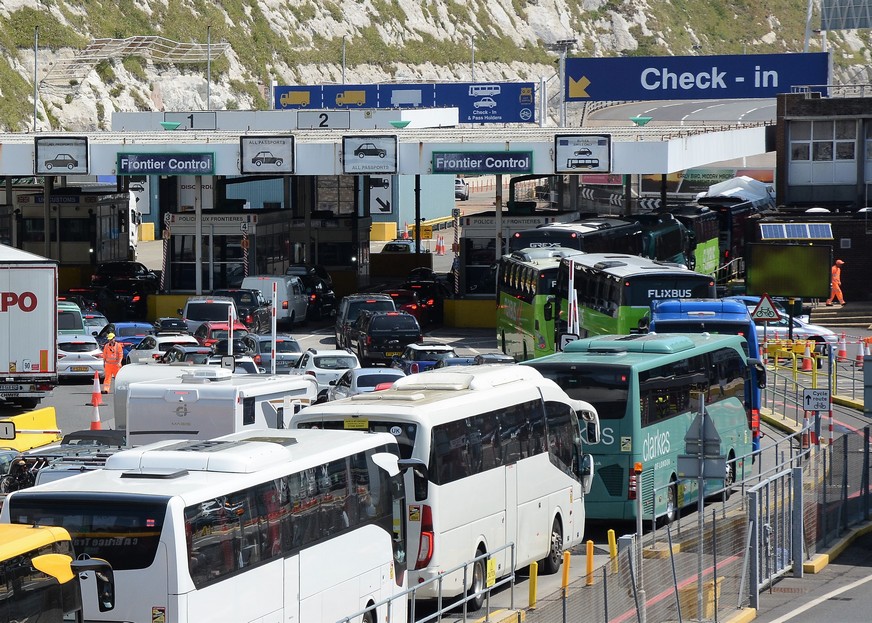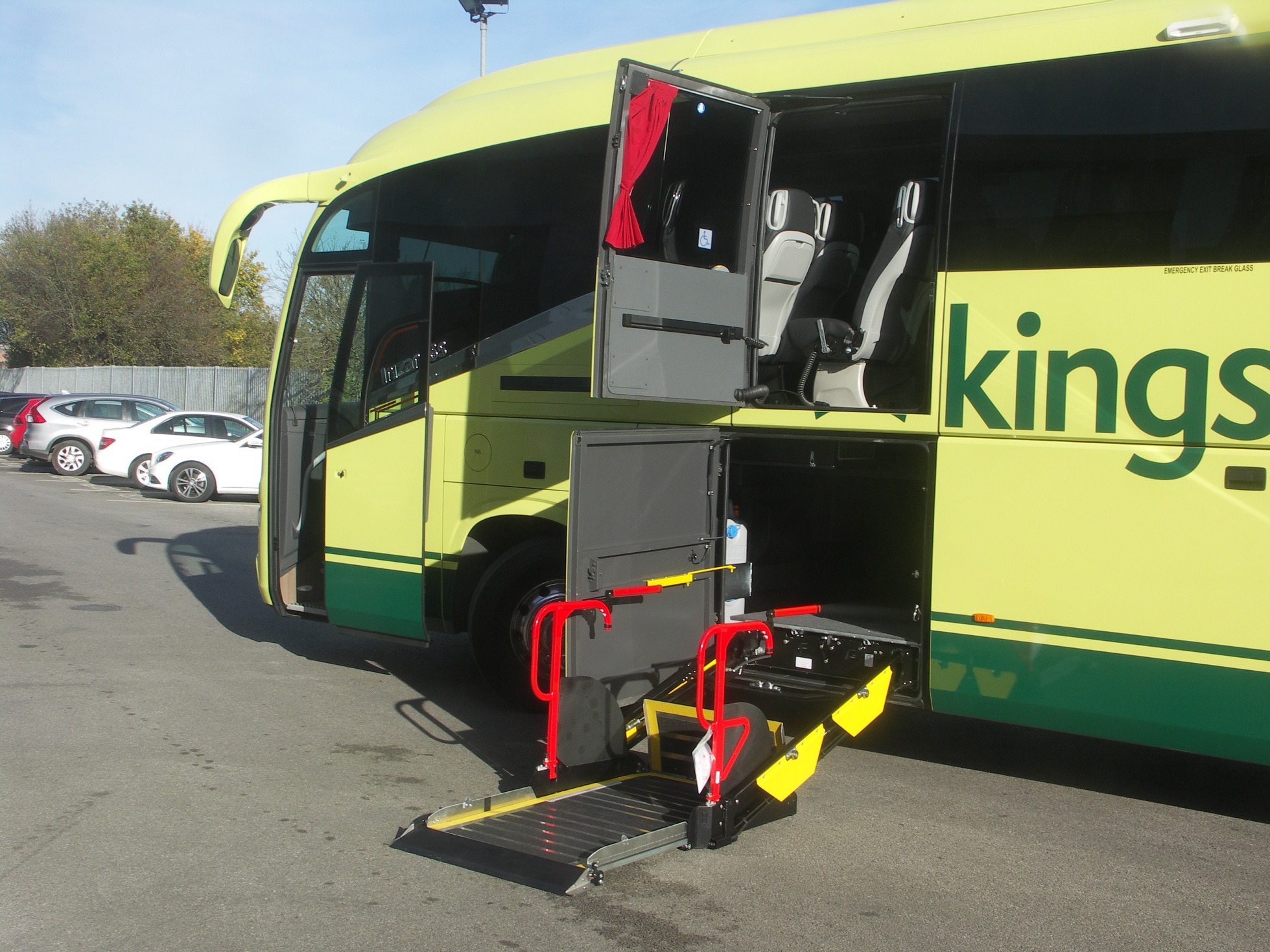A move by Port of Dover to ease delays and reduce queuing for coach operators at peak travel times appears to be working. But is this a case of simply moving the queue?
It’s unlikely that the weekend before Easter 2023 will be forgotten by coach operators heading across the Channel from Dover who found their vehicles caught up in some of the lengthiest delays ever experienced at the port.
Today, Port of Dover has implemented a number of improvements aimed at reducing those delays, working closely with its operational partners. These include the Port Authority, Police aux Frontières (PAF), UK Border Force and the three ferry companies: DFDS, Irish Ferries and P&O Ferries.
From a coach perspective there are two key developments. The first is the use of the Coach Processing Facility (CPF), a buffer zone first introduced at Easter to ease pressure on the main port, then run with a successful trial over the May half-term break.
It’s a facility that, when operational, must be used by all coaches. It gives port officials the opportunity to capture the legally required Advance Passenger Information (API), eliminating the requirement at the port itself. The CPF currently operates on Thursdays to Sundays, and on other days if needed, until Saturday 26 August.
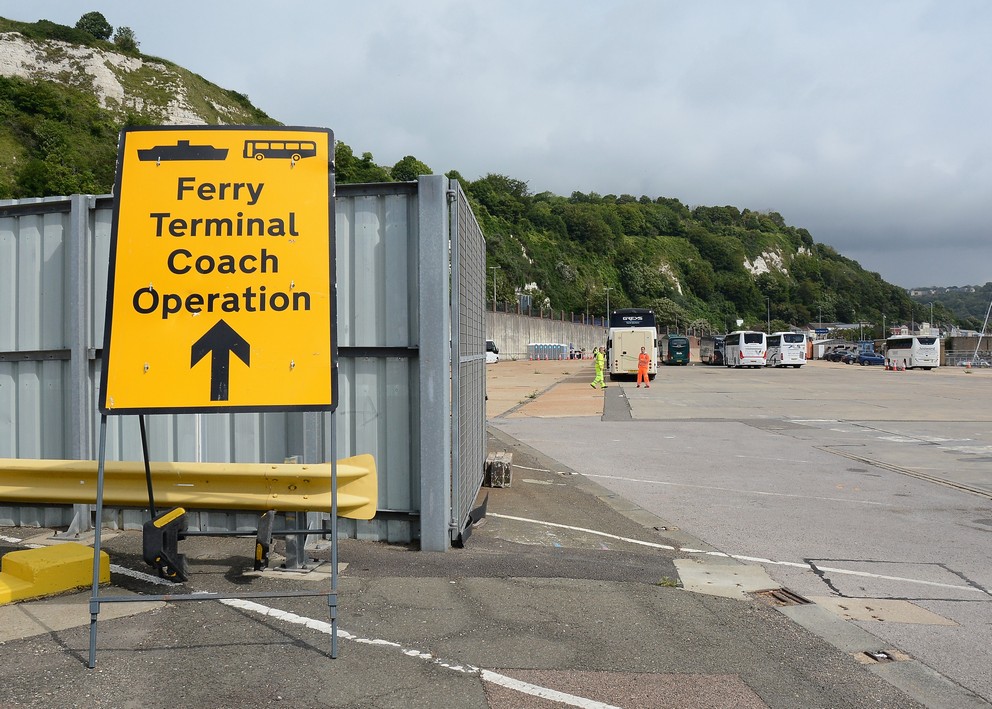
Limited facilities
Accessing the facility from Limekiln roundabout on the A20 at the western end of the town, drivers follow signs to the ‘Cruise Terminal’, before dedicated yellow signs guide them off to the left, through a lorry park, and into the CPF.
There are three queuing lanes and a sequencing process that sees each coach being given a numbered card on arrival to place in their windscreen. Once the API process is completed, and the numbered card stamped accordingly, the coach is released. Drivers then rejoin the A20 dual carriageway to travel through the centre of Dover to reach the main port.
With coaches not expected to be in the CPF for very long, passenger facilities are limited to seven Portaloo-style units and a tap to refill water bottles.
The CPF can cater for around 60 coaches. If needed there’s space for a further 40 vehicles in the neighbouring cruise terminal.
The second significant improvement is the installation of four additional booths in the main port for PAF border control officers. The lack of enough officers to check and stamp passports has long been cited as one of the main reasons for delays in passing through the port. Now, moving from three to seven positions, and assuming full staffing, this part of the process should be significantly quicker.

Positive relationships
Commenting on all of this, Doug Bannister, Chief Executive, Port of Dover, tells routeone: “We want to do what we can to support the coach sector,” he says. “We are now the primary route across the Channel and we recognise the importance of getting coaches through the port as quickly as possible. Easter was all about delays through Border Control and the need to inspect and stamp passports. Now we have more booths. There’s a very positive working relationship between ourselves and PAF, as there is with all agencies. PAF has been faultless and entirely sympathetic. There’s a willingness to engage and a recognition that working together delivers a smooth transit through the port for everyone. We are sharing hour-by-hour projections with our operational partners for every day of the summer getaway, and will do so for all busy periods. This will help everyone plan their resources and processes. Looking ahead, the implementation of EES (Entry/Exit System) in 2024 will require a whole different set of processes. We’re working with our partners to mitigate this. Through routeone I want to thank the coach industry for your support and for your business. We really do appreciate it.”
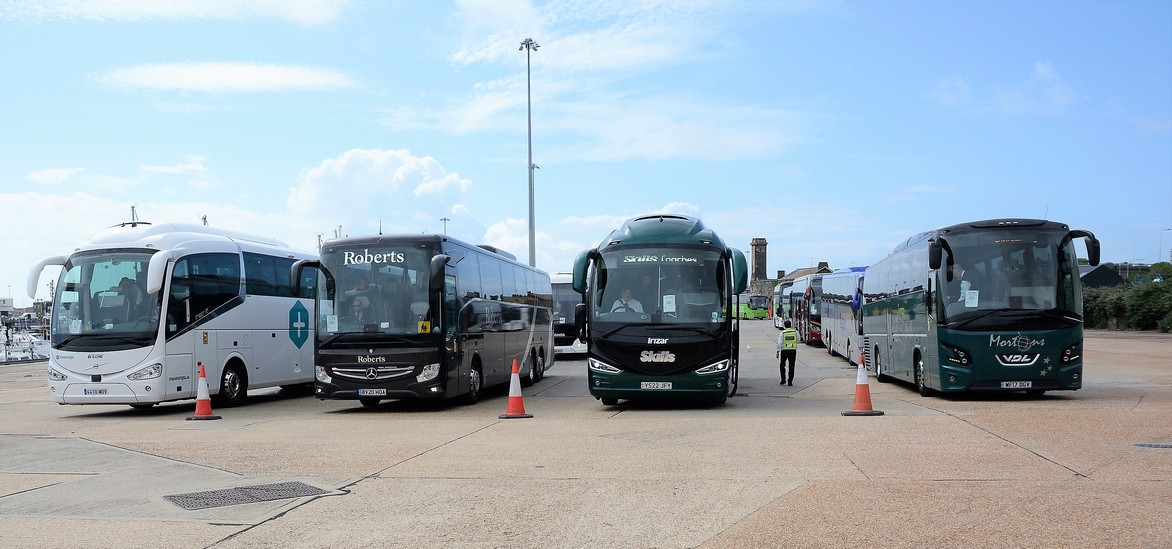
Appropriate resourcing
Over in Terminal Control, Emma Ward, Chief Operations Officer, notes that Mondays and Fridays are becoming popular travel days for coaches.
“There’s extensive planning by all the operational partners to ensure we’re ready and resourced appropriately,” she says. “We do ask though that coaches don’t arrive in Dover more than three hours before their booked sailing. Today, a Monday, we have 254 coaches booked. Our busiest-ever day was in 2018 when we had 650 in a single day.”
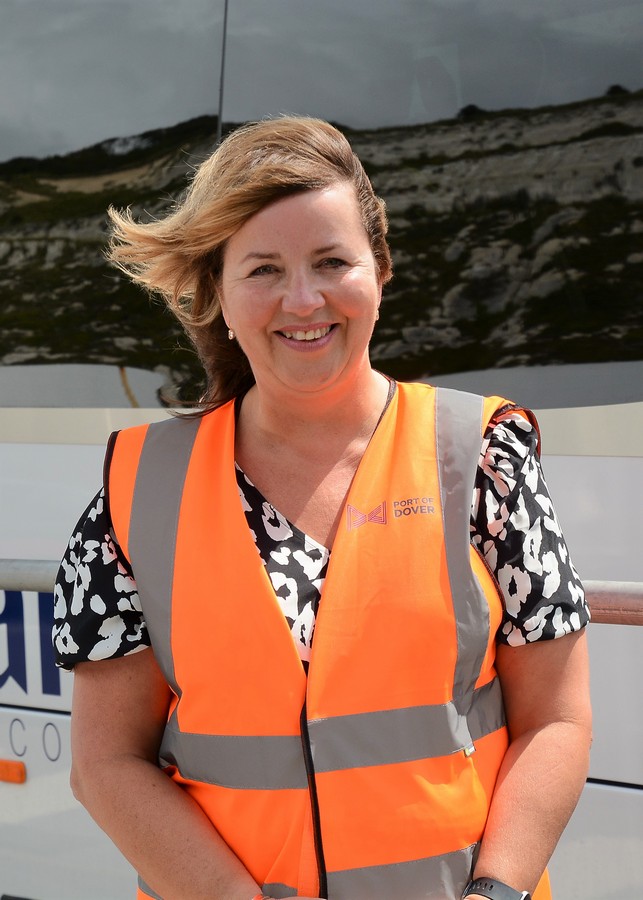
Phil Smith, Coaching Manager with the Confederation of Passenger Transport UK, says:
“We worked closely with Port of Dover in anticipation of the summer to ensure the needs of coach operators and passengers were fully understood. We welcome the port’s response to our calls for more French border control staff and improved coach facilities, and recognise the determination to deliver an improved customer experience. Considerable preparation has gone into creating an effective plan for handling coaches and the summer so far has demonstrated how the plan works. CPT will continue to work with our Dover partners to ensure the coach industry continues to benefit from investment in infrastructure and can continue to enjoy a successful summer.”
Andy Warrender, RHA Operations Manager – Coach Sector, says: “We’re pleased that the new arrangements at Dover seem to be working well and we hope this will be the case for the rest of the summer and beyond. We’ll continue to work with the port on ensuring that coaches can pass through as quickly as possible and with minimal disruption.”
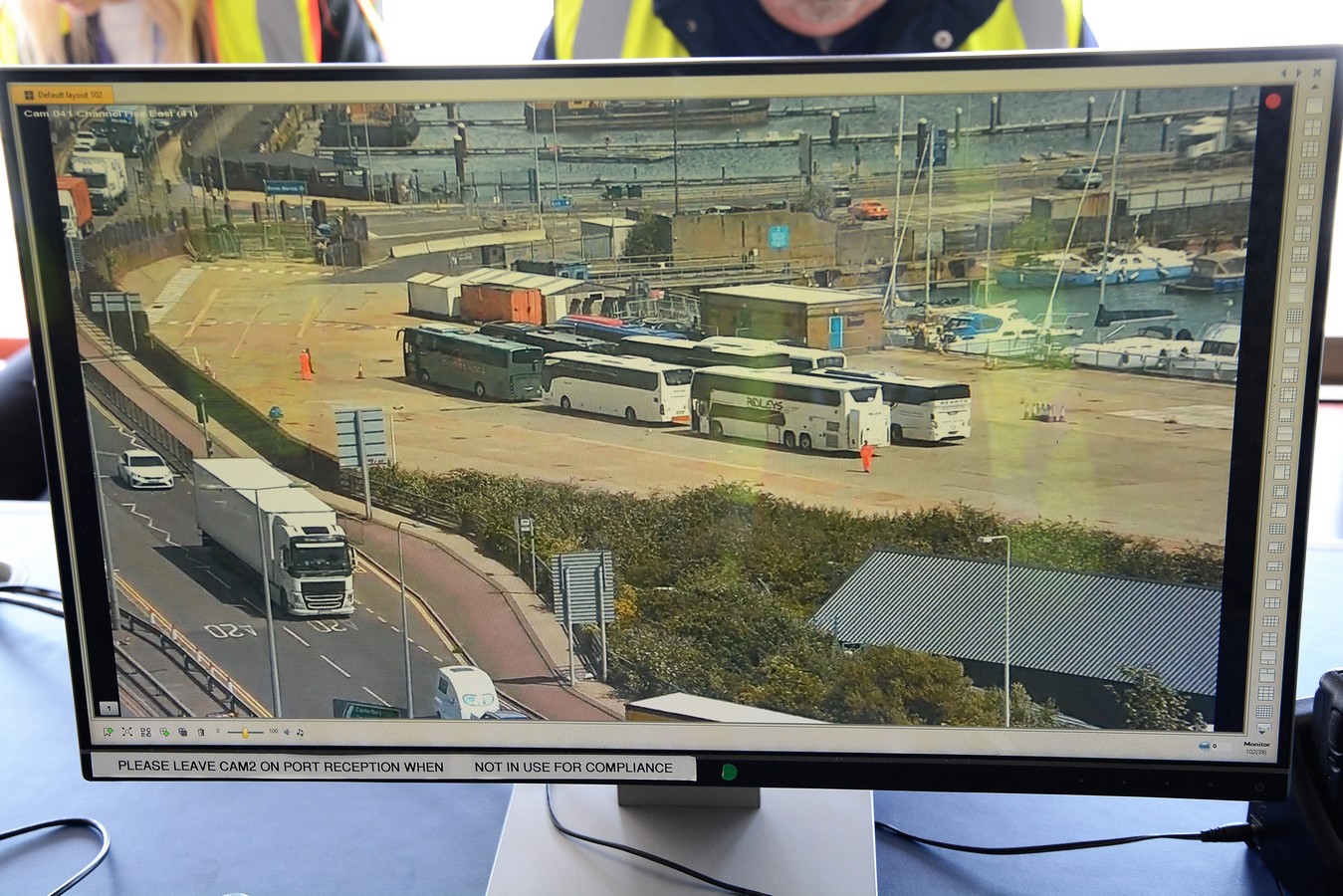
Town centre congestion
However, traffic congestion on the A20 and the importance of communications remain sticking points.
On Saturday morning, 22 July, Roger Bull, owner of Kettering-based R.B. Travel, travelled through the port on his way to the Italian Lakes.
“We use DFDS’ API app that allows us to complete the API process in advance,” he says. “As a result there wasn’t a need for an official to board and check our passengers. We were released to head for the port but were very surprised to be told to return to the CPF because we didn’t have the correct API stamp on our paperwork. It seems this was an oversight by the CPF team because they hadn’t physically checked the coach! But with our paperwork stamped, and returning to the port, we were then caught up in traffic on the dual carriageway that runs through the town. We missed our ferry.”
Dave Parry, of West Midlands-based Parrys International, believes the CPF is at the wrong end of the town.
“At busy times, because of the location, going in there and then getting caught up in traffic in the town centre can add 45 minutes to reach the main port,” says. “We’ve missed a few ferries because of it. We need the confidence that we’re going to catch our booked ferry.”
Barry Cobb, Tours Manager with Warwickshire-based Johnsons Coaches, notes the situation at Dover is better than it was.
“We’ve had no problems,” he says, “and it’s encouraging we’ve experienced no delays.”
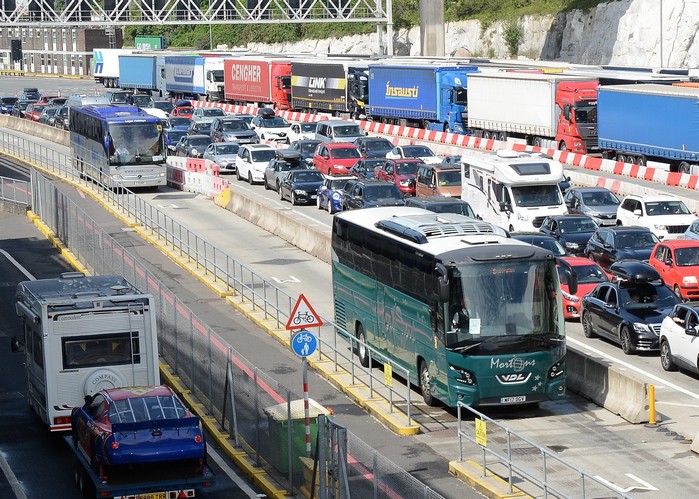
Driver communications
Elton Dean, a driver with Leicestershire-based Roberts Travel Group, notes the need for better information for drivers.
“The main issue is at the CPF,” he says. “Passengers can wait for a lengthy period of time. We have no information to say when the coach will be sent to the port. There are no places for passengers to get refreshments and when the coaches are released to the port, we have to queue again there, with the same lack of amenities and information. The new system just moves the queue from the port to elsewhere. There’s no real difference in timing. The installation of a new passport control in the main port has improved processing times as the French can now process two coaches at the same time. We also need to know when this operation is taking place. We arrived at the port only to be kicked out. Information is key. We, as the drivers, are having to deal with the situation as it happens, and passengers have questions after questions, to which we don’t always have the answer.”

As Port of Dover looks ahead, a new project looks set to give 42% more space in the main port by 2026 by using a former freight area at the far eastern end of the port in which to relocate the existing ferry operator check-in booths.
Ensuring coaches have easy access through the port is likely to keep the Port of Dover team busy for some time yet.





















